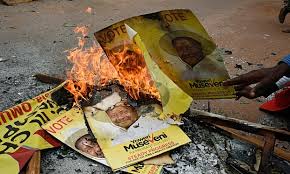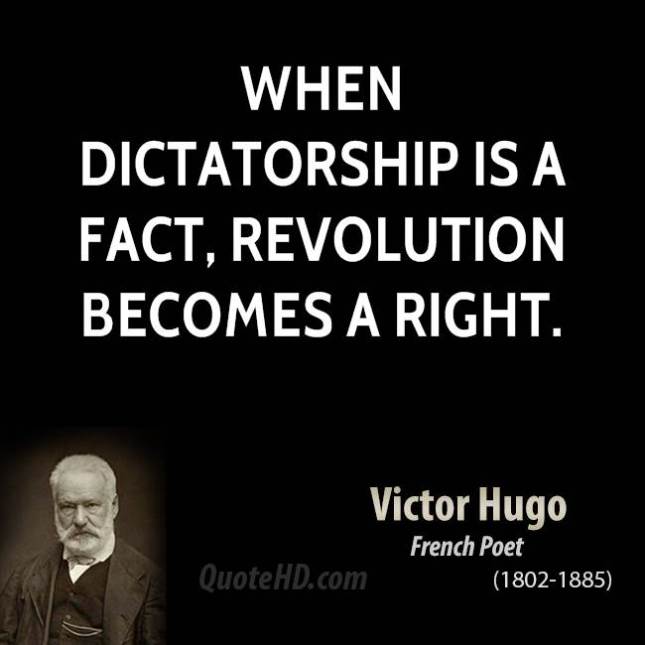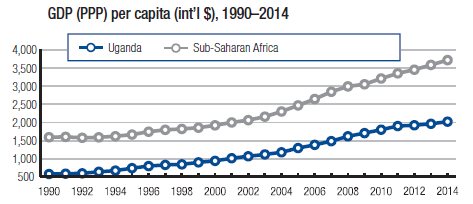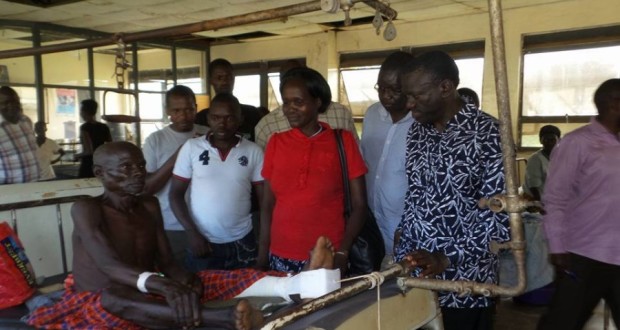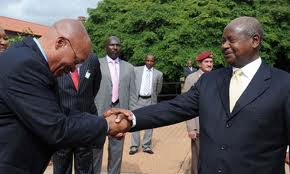Compiled by Stephen Twinoburyo

Our president is indeed a man of solid vows… and we are a vowed nation.
• New Ugandan Leader Vows to End Terror: “No regime has the right to kill any citizen of Uganda. No regime has got a right to beat a citizen of Uganda,” Museveni said. “As for the killing, this is absolutely out. You soldiers kill a citizen, we kill you. Any individual, any group or persons who threaten the security of our people should be smashed without mercy. The people should die only from natural causes beyond our control, but not from fellow human beings.” – Washington Post, 30 Jan 1986.
• Museveni vows to take coffee war to Nestle on Agoa’s backMuseveni said Uganda would take on Nestle by using the Africa Growth and Opportunity Act (Agoa), which gives African exports duty-free access to the US market, to sell to US consumers. Asked later exactly how he would do that, Museveni said: “That is my secret.” – IOL (S.A.), 12 Jun 2002 [WEF].
• Museveni vows to end poverty – New Vision, 13 Jan 2006.
• Museveni Vows to Reduce Poverty: Poverty will be greatly reduced by the year 2015, President Yoweri Museveni has promised – New Vision, 25 Oct 2009.
• I will stop corruption, President promises – Daily Monitor, 26 Oct 2010.
• Museveni vows to fight corruption: “In the coming five years, corruption will stop. Don’t fear these local thieves (corrupt official and leaders). I will not tolerate anybody who doesn’t adhere to the laws. Anybody who is corrupt, we should fight,” said Museveni [after his swearing in] – Bulawayo24, 26 Feb 2011.
• Uganda’s Museveni vows to quash food price protests: Ugandan President Yoweri Museveni on Saturday warned he would not allow protests against food and fuel price rises led by opposition leader Kizza Besigye. – Reuters, 16 Apr 2011.
• Museveni vows to crush corruption. – New Vision, 19 Jan 2012.
• Museveni meets donors, vows on corruption – New Vision, 19 Nov 2012.
• Museveni vows to fight corruption in 2013 [New Year message] – New Vision, 01 Jan 2013.
• President Yoweri Museveni, who is on a poverty eradication drive in Luwero district, has vowed to make Luwero Triangle, a model zone where the rest of the country can learn modern commercial agriculture from. “I want to make Luwero distric a model zone in Uganda as far as creating wealth is concerned. I will establish a barracks in every Saza to ensure the implementation” – New Vision, 11 Jul 2013.
• Museveni vows to jail critics of army on Naads: Mr Museveni said the soldiers have a clean record as far as corruption is concerned, adding that he does not want to hear anybody associating them with it. “These soldiers know they have to be disciplined. I do not want to hear anybody saying they have taken bribes because those who do will be arrested and taken to prison,” he said. – Daily Monitor, 19 Nov 2014.
• Museveni vows to arrest errant politicians. – NBS, 19 Aug 2015.
• Uganda’s Museveni vows to pull out of “partisan” ICC. – Sudan Tribune, 14 Feb 2016.
• Museveni vows to crush protesters: Mr Museveni told those who want to protest his victory to do it in their homes or playgrounds but not on the streets, vowing that those who will fail to heed will be crashed. – Daily Monitor, 04 Apr 2016.
• Sixth term: Museveni lashes at ICC, vows to fight corruption – The Observer, 13 May 2016.
• President Museveni vows to lower electricity tariffs. The President emphasised that “this tariff is only for manufactures and maybe people in the hotel industry and not for preachers at night, Nsenene (grasshoppers) hunters and dancers in night clubs.” – ESI Africa, 17 Oct 2016.
• Museveni vows to limit freedoms on booze, gambling. He noted that it’s that freedom which Ugandans are enjoying that is luring Kenyans to flock the country to have a test of it…. “I think I need to revise some of these laws,” he said. The President said he feels sad to hear a cross section of Ugandans complaining that they lack freedom when Kenyans come to Uganda to enjoy it. – New Vision, 10 Dec 2016.
• President Museveni vows on corruption, “its an open war” – State House Uganda, 13 Apr 2017.
• Museveni vows to clean police – NBS, 02 Jun 2017.
• Museveni vows to make Uganda Airlines a success. – NBS, 04 Jun 2017.
• Museveni Vows to Fire Striking Doctors and Recruit New Ones. – ChimpReports, 16 Nov 2017.
• Museveni vows to jail rogue security chiefs. – Daily Monitor, 15 Feb 2018.
• Museveni vows to crack whip corruption – NTV, 16 Apr 2018.
• ‘Down with the pigs’: Museveni vows to eliminate assassins of Ugandan MP – Africa News, 11 Jun 2018.
• Museveni vows to crash criminals destabilising Uganda. For the first time in the last 500 years, Museveni said Uganda is now enjoying total peace within all its borders thanks to his National Resistance Movement government. – The Observer, 21 June 2018.
2018 – 500 = 1518.
It’s safe to say Uganda had last had peace in 1517.
If we assume Uganda got peace in 1986, then we subtract another 32 years and it would then even be safer to say the country had last had peace in 1485 AD. That was even before Vasco da Gama hit the Southern African shores.
• President Museveni has vowed to get rid of the current Electoral Commission which he accused of being corrupt, and said he will replace it with cadres of his ruling NRM party. “The Electoral Commission is full of rotten people,… I am going to get rid of them [EC]. Why should we suffer with corrupt election officials when NRM has got so much manpower?” – Daily Monitor, 28 Aug 2018.
• President Museveni has vowed to re-activate bush war tactics to deal with criminals and mafia in Uganda – PML Daily, 09 Sept 2018.
• Museveni vows to sack incompetent officials – NTV, 11 Sept 2018.
• Museveni vows to make Kampala a safe city within 9 months – KFM, 17 Sept 2018.
• Museveni vows to sack corrupt officials, again.. – NTV, 13 Dec 2018.
If he vows to himself to rule us for the rest of his life because we are good vowees, won’t we be grateful?








